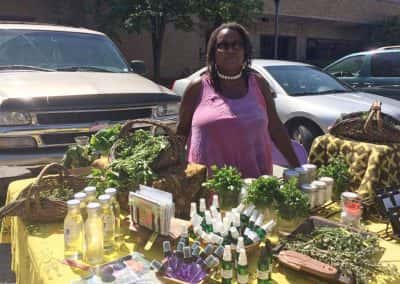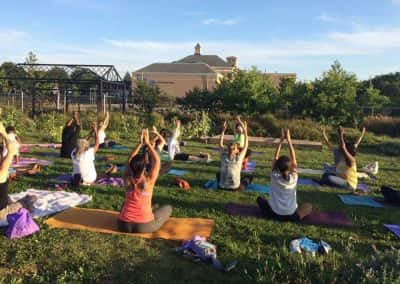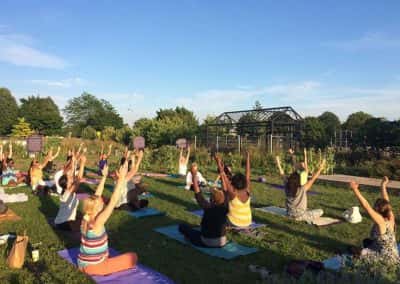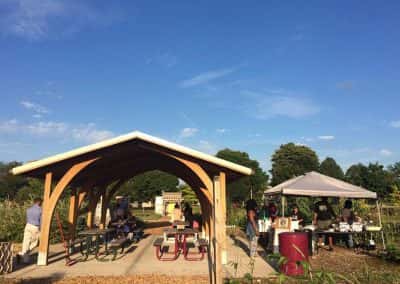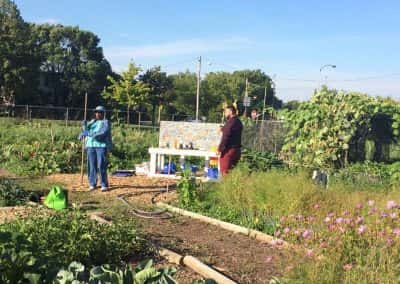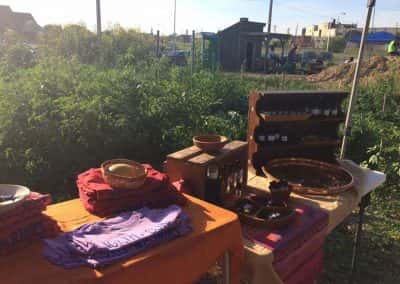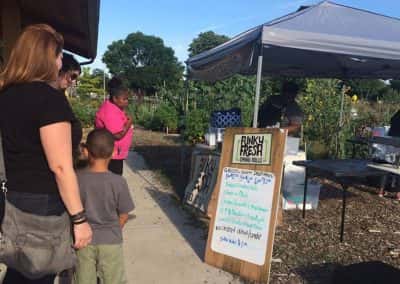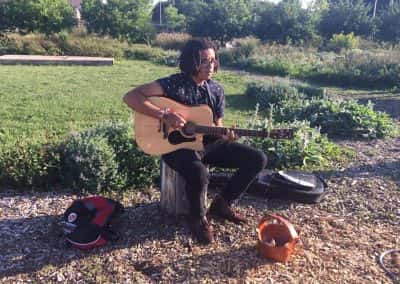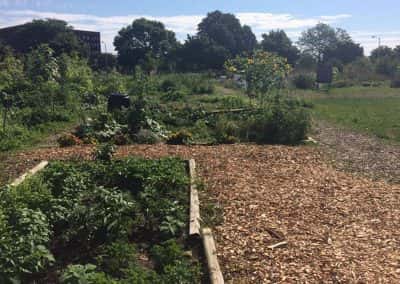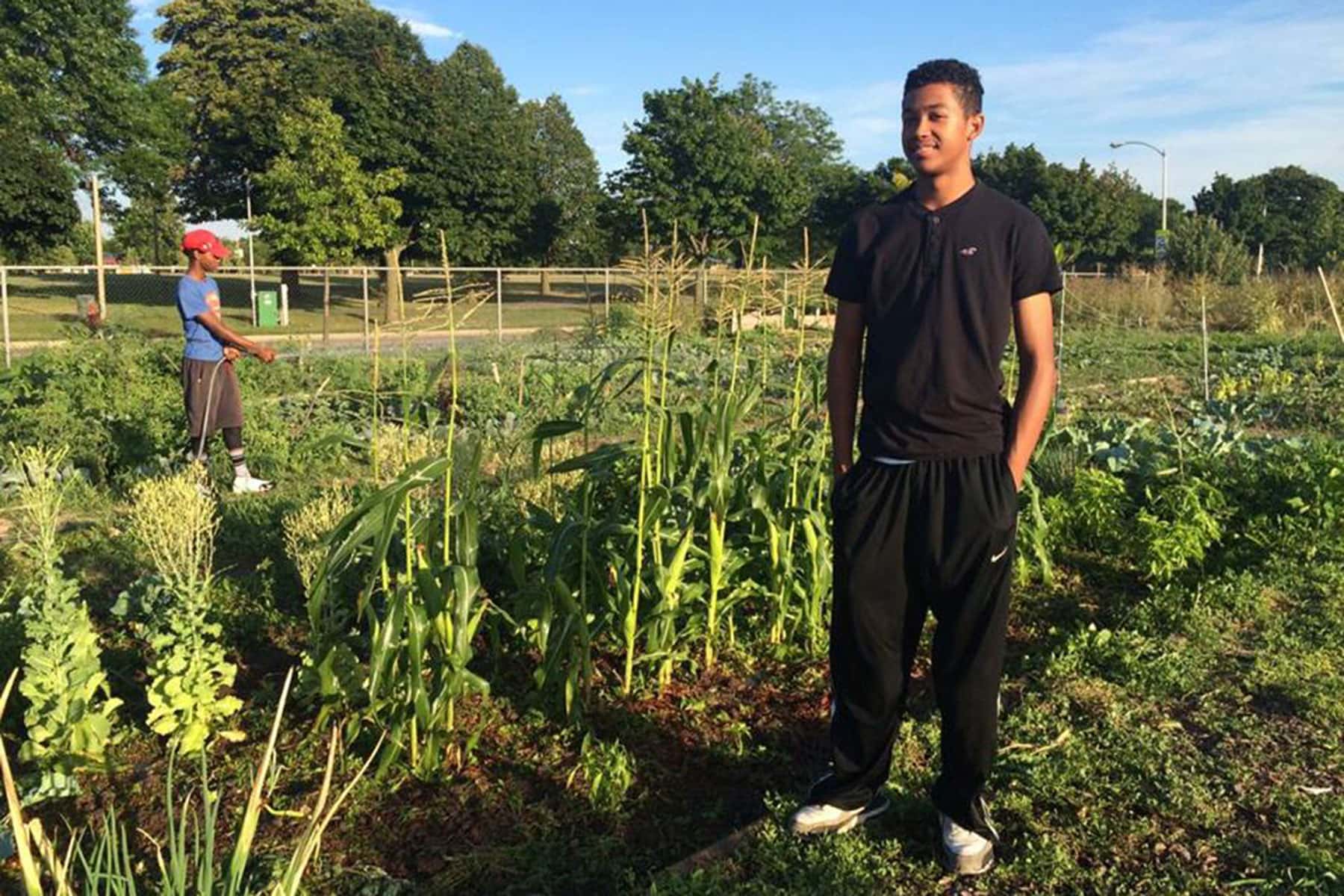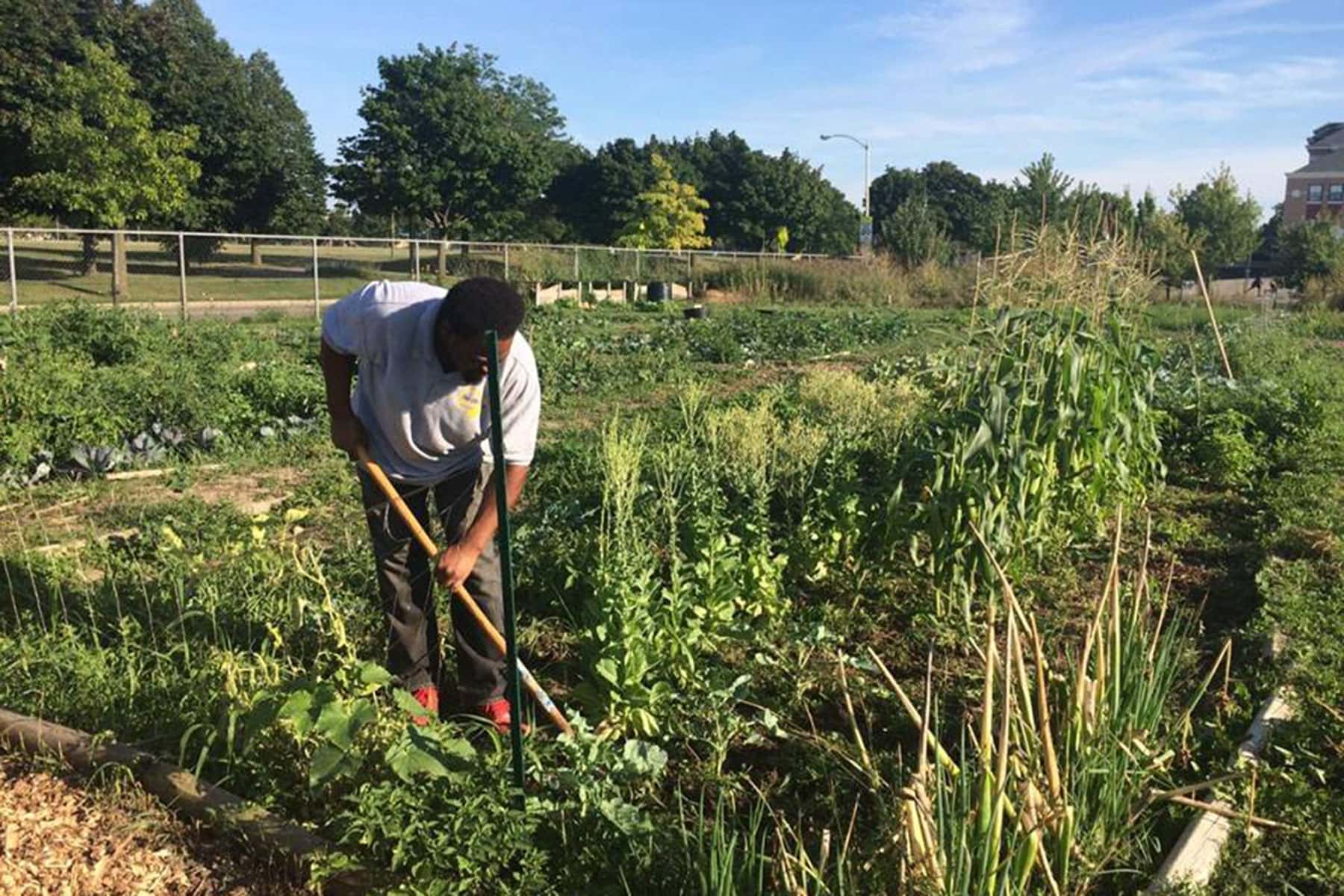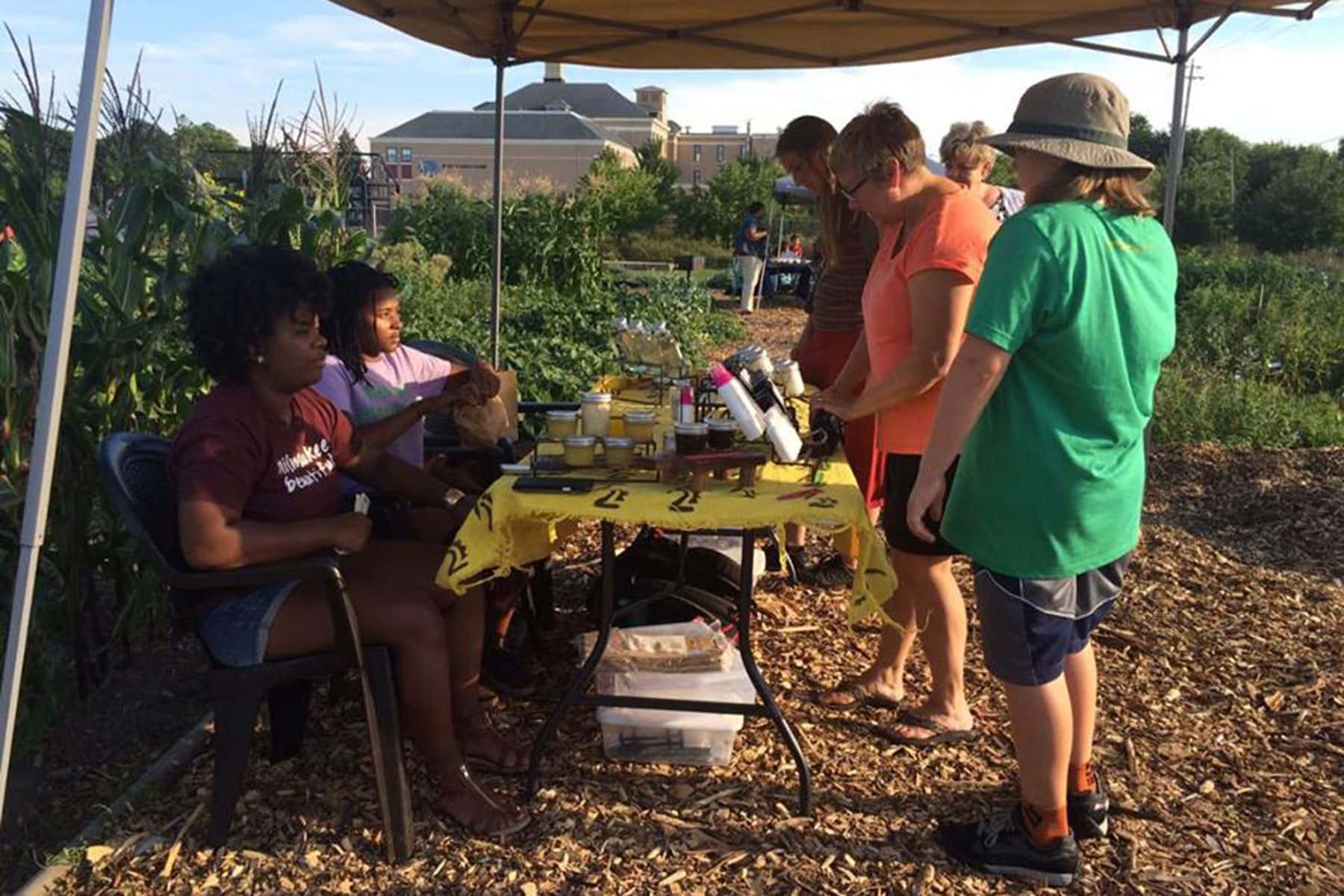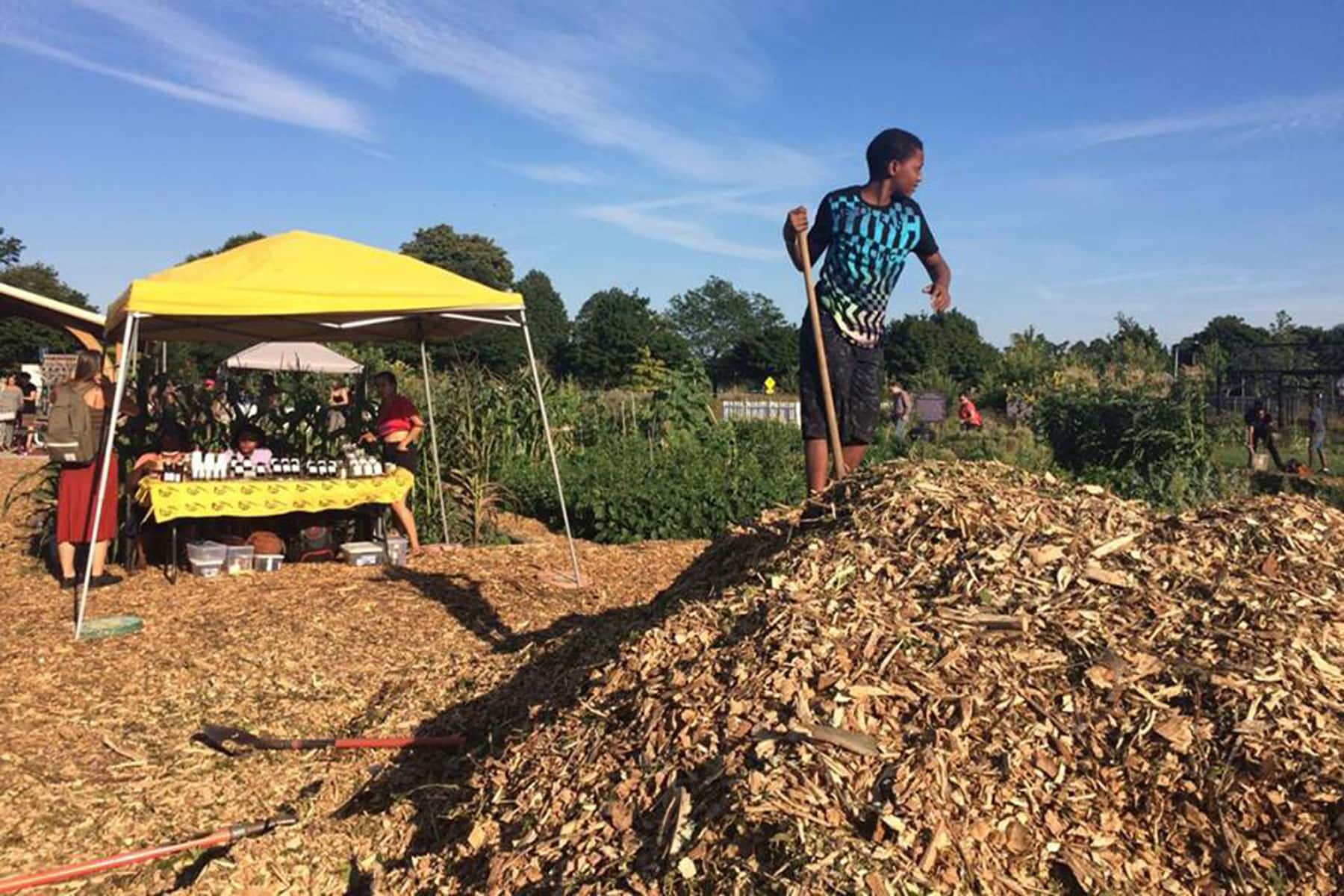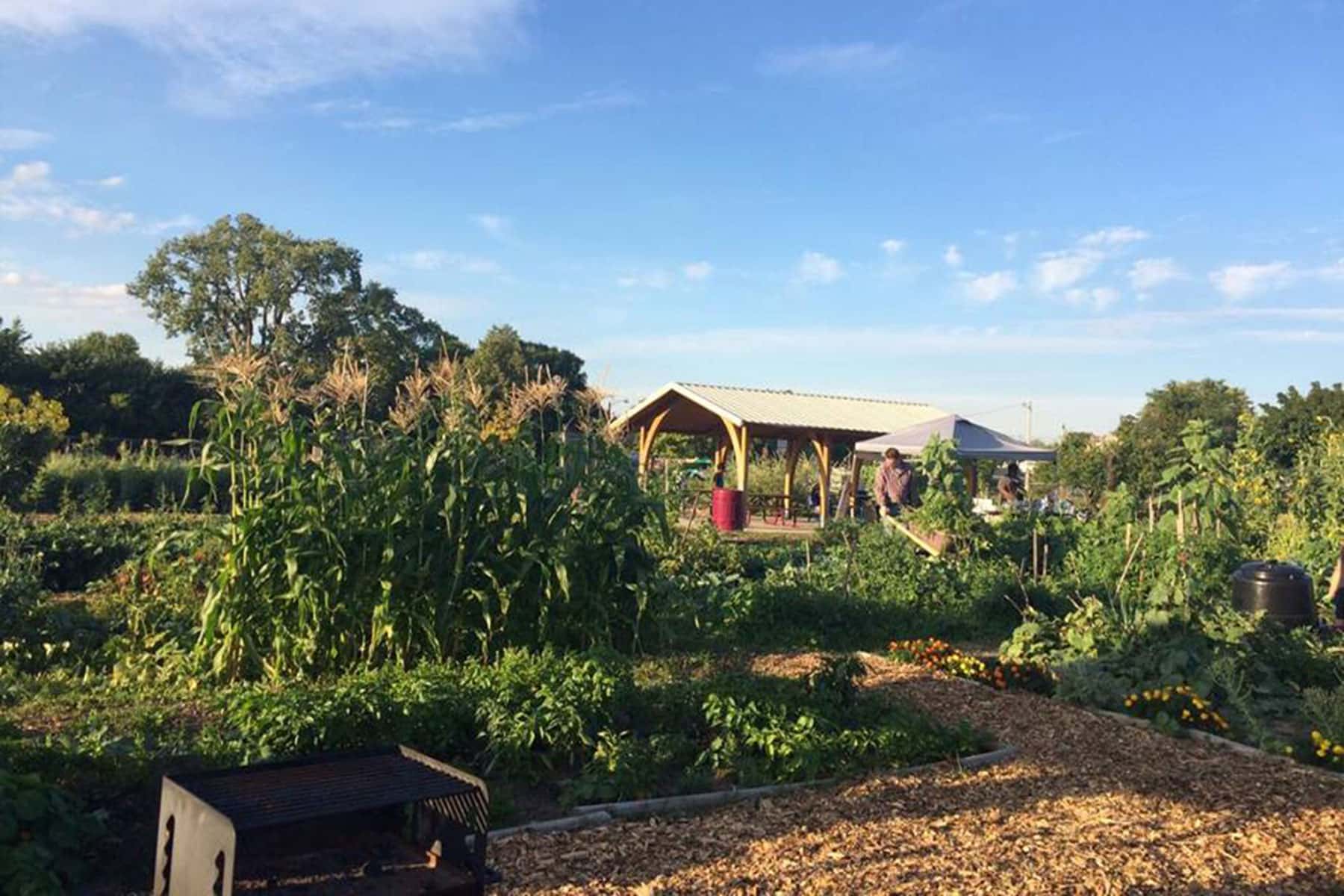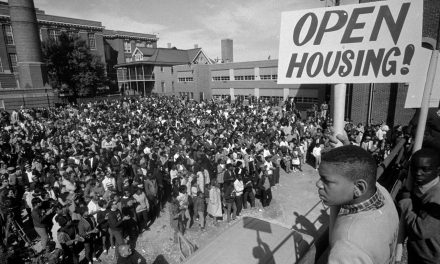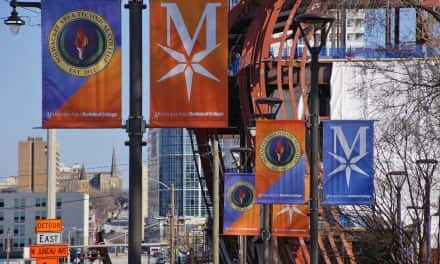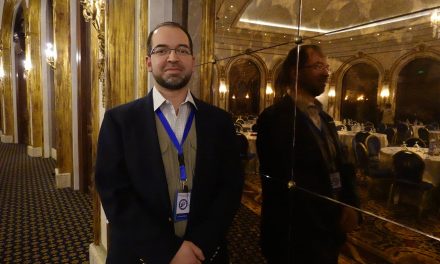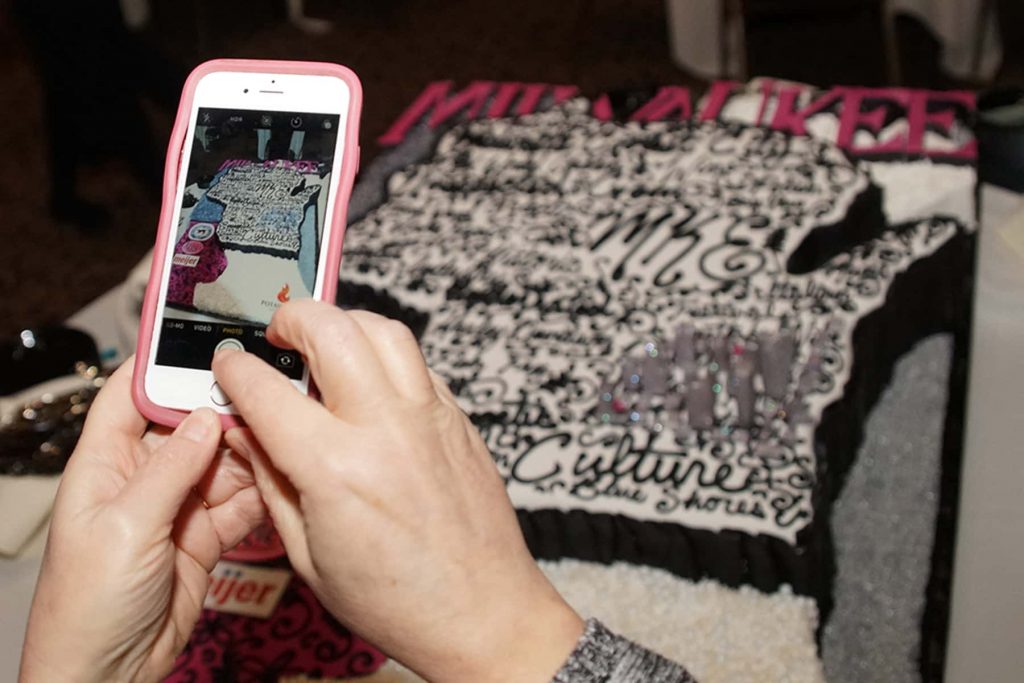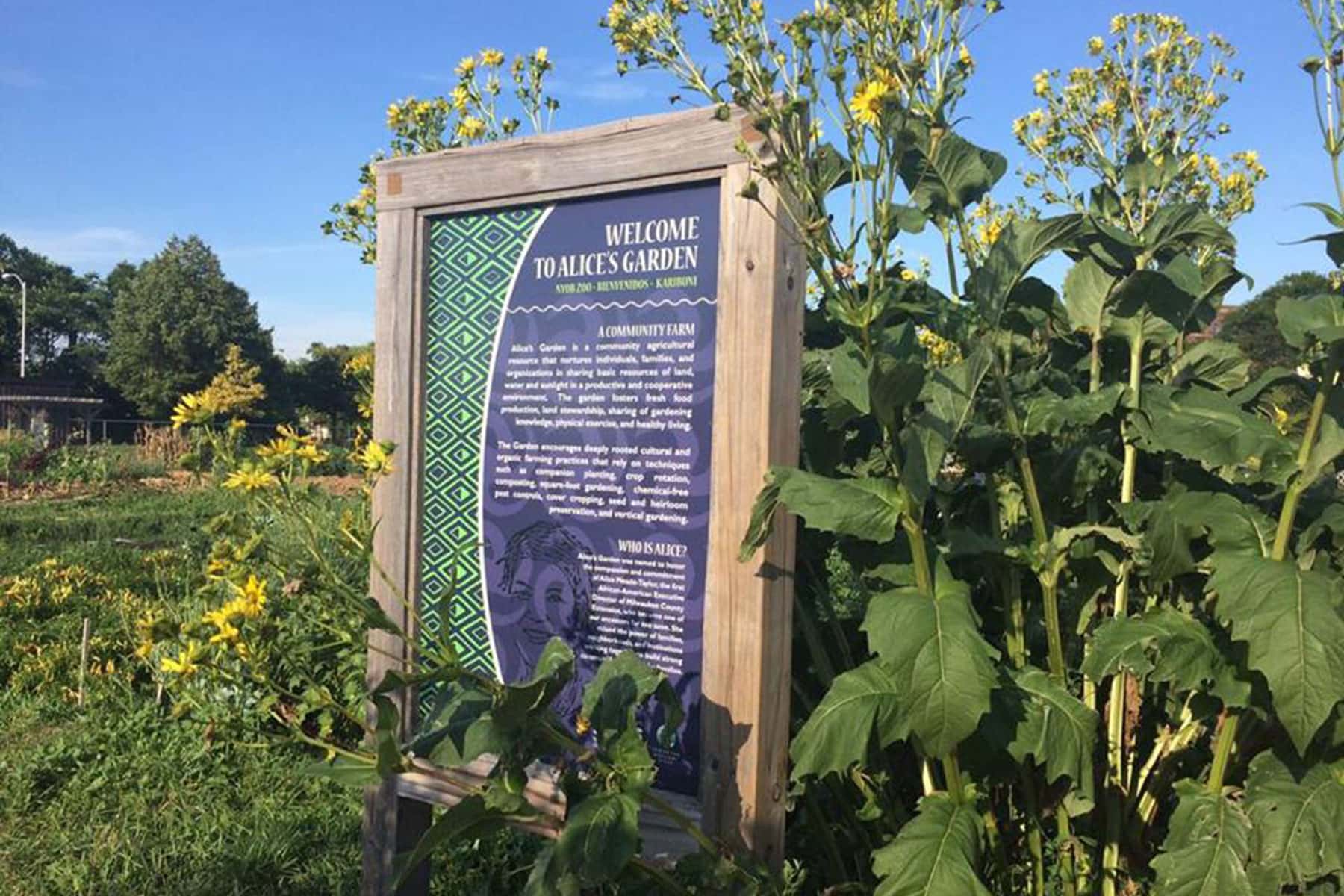
There are no quiet days at Alice’s Garden. Gardeners, volunteers, and local residents gather every day at the two-acre urban community garden to tend their plots and participate in agricultural fellowship.
“This work in the garden is about healthy food access, about building community and bringing each other out of isolation,” said Venice Williams, director of Alice’s Garden. “But most of all, it is soul work. It is really about going deep into the core of people’s lives to connect and sometimes reconnect them with land and with the culture of food.”
The garden was established in 1972 at its 21st street location, which also marks the birthplace of Wisconsin’s Underground Railroad. It saw new light in 2004 when Williams became its leader. Williams is also a Lutheran minister and she used her extensive community connections to build the garden from a corner of land to the busy community hub it is today.
In order to bring the predominantly African American population back to the garden, Williams went door to door in the neighborhoods, and talked to various churches and organizations about signing up for a plot. During her first summer working at the garden, 15 gardeners showed up and by the end of the summer the garden had a waiting list of 35 people. Williams said this was “because for the first time in a long time they saw African American families in the garden.” Before her first summer in the garden, some believed this was not possible.
“One of the staff members said, ‘you’re never going to get African Americans to come back to garden,’” explained Williams. “And I said, ‘we’ve never left.’ We’re still doing it in our backyards. We’re not doing it in a communal sense because we don’t need to. We have backyards. If you look carefully along our driveways it’s a hosta, a collard green, a hosta, a mustard green.”
The garden space has continued to grow and build relationships over the years that William has been director, through its various programs and events. On Tuesdays over the summer it hosted “Music, Market, Yoga!” It was a popular event that featured products from local gardeners, local music, and, of course, yoga.
The mission of Alice’s Garden does not stop after the growing season. Williams also runs the Body & Soul Healing Arts Center, which continues the work year round and also has an indoor market.
Many community organizations have plots at the garden. Running Rebels, a youth organization providing positive choices for Milwaukee’s youth, has a plot for the purpose of teaching kids about gardening and providing healthy food. At the plot, kids have grown corn, cucumber, pumpkin, kale, watermelon, peppers, cabbage, onions, and lettuce, all of which they bring back to their center, located a mile away from the garden.
“I’ve learned a lot about how to plant and pick the plants, where to find them, where to pick the weeds, and about how to water them. There’s a certain way to water them that I never knew before,” said Marquis Hopgood, a running rebels member who worked on the plot all summer. Hopgood plans on continuing gardening after he is done with the program.
Alice’s Garden also hosts the MOVE crew, an organization that recruits young Milwaukee high school students to study agriculture in higher education. Standing for More Organic Vegetables Everywhere, the MOVE crew teaches students about farming by having them work in Alice’s Garden during the summer months.
The garden has made tremendous progress in helping promote agriculture and conquer the “food desert” that exists around its location in Milwaukee. A large part of the progress is due to the involvement of supporting associations.
“There are a lot of community organizations and families here. So that’s a start,” said Sojourner White, Williams’s daughter. “Who knows how many people these organizations touch on a daily basis. From there it’s kind of a ripple effect. Hopefully, we get people back into their roots, literally, in their gardens in their backyards, in their front yards or whatever piece of grass they have.”
Williams also has a herbal apprentice program to encourage local gardening. This program brings people from the community into the garden and teaches them about gardening. They then bring program participants to local farmer’s markets and teach them how to sell their products.
Williams is even hesitant to say that the area surrounding Alice’s Garden is a food desert anymore. She identifies the Fondy Foods Center, Walnut Way, Alice’s Garden, as well as the various backyard gardens as places where people are now able to find healthy foods. Her husband Demetrius Brown also runs the garden’s Corner Store Initiative, which brings fresh produce to local corner stores.
“I think we’ve really impacted what people eat, how people eat, and even how often they consume fresh fruit, vegetables and, of course, herbs,” said Williams.
Nicole Carver, a local gardener who has had a plot at Alice’s Garden for years thinks that the garden helps promote healthy eating by simply being a presence in the community.
“By being here, people see the vegetables when they come in to help out,” said Carver. “The table by the gate is a free table. If we have surplus vegetables we leave it on the table and it’s open for anybody.”

